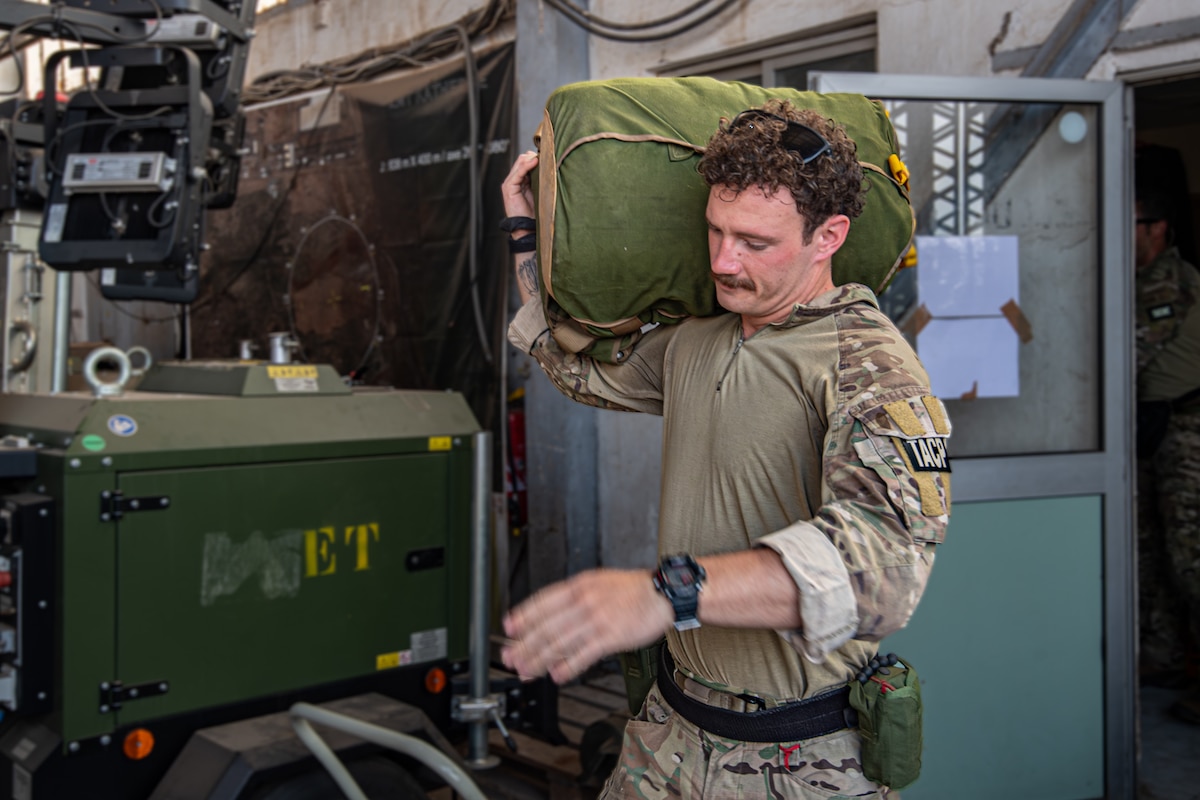U.S. Pararescuemen and French paratroopers conducted a three-day parachuting exercise in Djibouti, March 17-19, strengthening their partnership and demonstrating NATO interoperability with a series of jump operations with various U.S. and French aircraft and parachute systems.
The exercise, led by a master sergeant and pararescueman assigned to the 82nd Expeditionary Rescue Squadron, saw the two nations exchange parachute systems and techniques.
"The master sergeant's expertise as our most experienced Military Freefall Jumpmaster was essential," Captain Courtney M. Bailey, the 82nd ERQS commander said. "His meticulous three-month planning effort, encompassing waivers, aircraft coordination, liaison visits and academic training, ensured the exercise's success." He also served as the primary jumpmaster for the deployments from U.S. aircraft, conducting inspections, verifying the release point and overseeing the deployment of jumpers.
The exchange allowed French paratroopers to use the U.S. MC-6 parachute system, jumping from a U.S. Marine Corps KC-130J, while American jumpers used the French EPC parachute, jumping from a French Casa CN 235.
"This exercise highlighted the procedural interoperability between our forces," Bailey said. "We share similar safety restrictions and jump procedures, crucial for safe and effective operations. Increased frequency of these exchanges will streamline future collaborations."
The exercise culminated in a combined military freefall jump from a U.S. Marine Corps MV-22B Osprey at 13,000 feet - the first time any participating jumper had used the Osprey as a jump platform and only the second known instance of such an operation in Djibouti. The successful jump showcased the adaptability and readiness of both forces.
"It was the highlight of an intense aeronautical week," said a French Sergeant Major, a military freefall instructor, in charge of managing all French airborne activities, who has 28 years of service. "Through our exchanges, the 'paratrooper spirit' that drives us all allows us to successfully carry out our missions and always strive to do what others won't. We are driven by the same enthusiasm."
A total of 83 individual jumps and two equipment bundle drops were executed. Participants included personnel from the U.S., France and Djibouti, representing 16 units, including eight French Land Army and French Air & Space Force units specializing in rigging, medical support, ground support and flight operations.
"I believe training with partner nations is essential," said French Chief Sergeant Frédéric. "It allows us to share knowledge and improve together and even evolve our own techniques. The jump was the most memorable part for me. The atmosphere was excellent and sharing that experience with the Americans made it unforgettable."
"Future 82nd ERQS teams will continue training with French Forces Djibouti as opportunities arise, focusing on close air support, parachuting, vertical lift operations and weapons training," the commander said. He also noted the morale boost the exchange provided: "These exchanges are always rewarding, and the French tradition of serializing jump wings adds a unique element of prestige."
The event underscored the shared regional interests of both nations and their commitment to stability in the Horn of Africa. Combined Joint Task Force-Horn of Africa emphasized the importance of such partnerships in promoting regional stability, free trade and countering violent extremist organizations. The exercise serves as a testament to the strong partnership between U.S. and French forces in East Africa.









